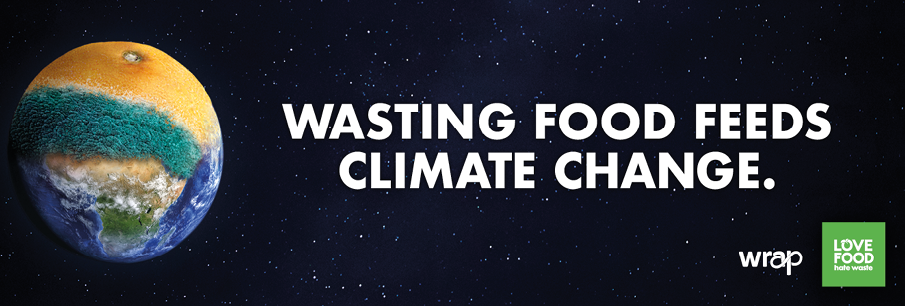Food Waste Action Week is being delivered through WRAP’s Love Food Hate Waste brand and aims mitigate the impact food waste has on the planet. From a climate change perspective, food waste contributes around 8% of global greenhouse gas emissions. The aim of Food Waste Action Week is to bring together people and organisations from retail, manufacturing, local government, hospitality and elsewhere to demonstrate the impact of wasted food on people, on business, and on the planet.

From Monday, 1 March through Sunday, 7 March, the week is dedicated to raise awareness of the environmental consequences of wasting food, and promoting activities that will help make wasting food a thing of the past.
As part of the week, Winnow co-founder Kevin Duffy signed up for the Food Waste Action Week Challenge: #WasteFreeWeekend to get the food wasted at his home as close to zero as possible. In this interview he shares why he decided to join and also some of his top food-saving hacks.
Why are you taking part in the #WasteFreeWeekend?
It sounds like good fun, and I'm always up for a challenge. It's a great way to raise awareness about the problem, and to get the whole family engaged in some great conversations about the food we eat and the way we shop.
Over the last few years, food waste gains a lot of awareness thanks to initiatives like #FoodWasteActionWeek. Why do you think it is becoming such an important subject?
In my view, the trend is good, but food waste still doesn't get the attention it deserves. Food waste is worth about $1 Trillion/year. Global GDP is about $75 Trillion a year, so this problem is equivalent to 1.3% of all valued human activity. And of all the sustainability challenges, food waste is perhaps the most democratised - the one where each of us is quite directly responsible for a piece of the problem, and can take daily decisions that have immediate impact to solve the problem. So if we spent even a meaningful fraction of that 1.3% of our mindshare on preventing food waste for a little while, we would have a massive impact on both our collective finances and our planet.
What are the next steps according to you to try to solve the problem of food waste?
We need to keep the spotlight on prevention; preventing food from being wasted is far, far more valuable than recycling effort. Governments need to ban food waste going to landfill and mandate food waste collections for all businesses with significant foodservice. Once food waste is segregated, people are much more likely to begin to measure and value that waste - and seeing the true value and aggregated sheer volume of what's being wasted is what generally spurs those people to take action to prevent that waste, and capture all the benefits that come from doing so.
What are some of your favourite examples of consumer facing food waste reduction initiatives?
Surplus food distribution apps like Olio and Too Good To Go are great - they make food waste prevention a bit of fun and even support community-building in the case of Olio. In the UK, WRAP has shown good progress with its awareness-raising campaigns. And many councils like ours in Greenwich are making a good effort to support separate food waste collections, which is important to keep food out of landfill where it releases harmful methane gases, but also because separating it may tend to make people more mindful about what food they're wasting.
What are your top food-saving hacks at home?
The really simple but most important ones are making use of a freezer, and doing small top-up shops. Getting into the routine of freezing extra portions of things that keep well (and remembering to use them!) not only cuts food waste, but also cuts down the time we spend on food prep, as we can do bigger batches and then not need to cook from scratch every day to eat well every day. In addition to our weekly or fortnightly trip to a big grocery, we now make several quick stops during the week at small local shops to ensure our produce stays fresh and plentiful. This also helps us eat more healthy foods, and even if things are a bit more expensive at the local shop, when you consider the food waste we used to have from overbuying in our big shops, all told it's actually cheaper this way.
How are you teaching your kids to be more conscious of food waste?
Participating in Food Waste Action Week is a really great way to raise their understanding of food waste and the value of food. We'll be shopping for discounted near-expiry food together, searching through our stores for items past their best before dates, and getting creative on other sources of food we can find in or around London. Outside of Food Waste Action Week, we always have the kids take out the food waste bin, and we expect "clean plates", so if anything gets left on someone's plate at lunch, they'll usually get to finish it at the start of dinner and certainly before any dessert!
Keep an eye out for our tips and activities to reduce your food waste throughout the week by following the hashtag #FoodWasteActionWeek. Join us for this fun challenge and virtual activities to reflect and take action on reducing waste.







Comment on my blog